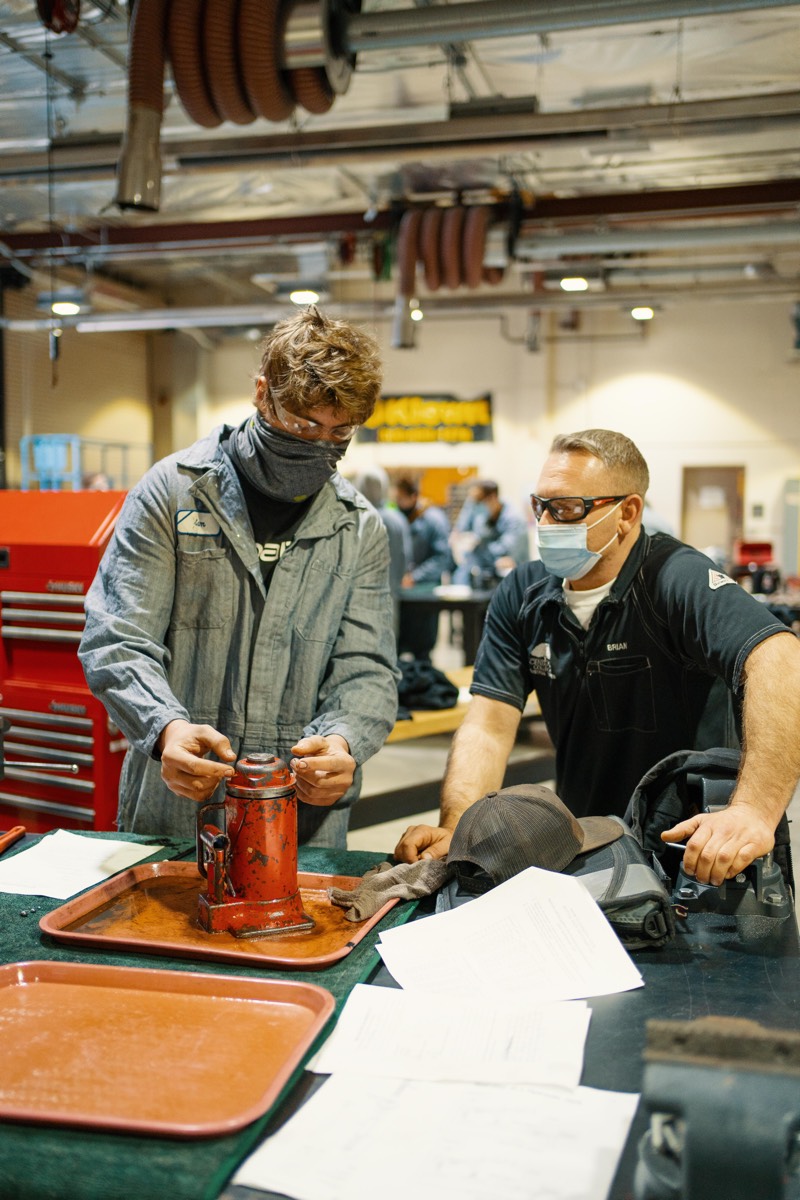One Path, One Certificate – Four Trades Programs
Centralia College’s Industrial Trades program, which includes diesel technology, electronics/robotics/automation (ERA), energy technology, and welding, is offering something new fall quarter -a common first year of classes that ends with an Industrial Trades Certificate.
 “This reorganization meets the needs of students, industry and the college,” said
John Steidel, Industrial Trades instructor. “Students will have a Smörgåsbord of options.”
“This reorganization meets the needs of students, industry and the college,” said
John Steidel, Industrial Trades instructor. “Students will have a Smörgåsbord of options.”
The common first year will include foundational classes, such as math, physics, and writing, and hands-on labs that offer basic welding, and electrical and mechanical systems. Students will be introduced to all four industries and have more exposure to gears, fluids, and pumps than what was previously offered.
“The math included within this program is applicable to the math needed to do the jobs,” Steidel added. “Students who often ask ‘What do I use this math for?’ will experience the real work applications.”
At the end of the first year, students with grades above a 2.0 will receive an Industrial Trades Certificate. The certificate confirms they have learned the skills and they may be hired to work as an entry-level mechanic assistant, robotics assistant, or millwright. If they choose to go to work after completing the first year, they may add additional Industrial Trades classes to increase their skills and abilities.
There is not a specific millwright program offered at any college within the state, according to Lisa Perry, Sierra Pacific Industries (SPI) Washington community relations manager. This common first year will solve that problem.
Modern millwork at SPI, for example, requires a blend of all the industrial trades. By blending all of the students into shared classes for their first year, they will be exposed to many career options that they may not have considered if enrolled in one specific trade.
“We’re excited to have the opportunity to visit students towards the end of their first year to introduce modern mill technologies and career opportunities,” Perry added.
If students choose to continue studying to obtain their associate degree, they can decide which of the four trades to focus on during their second year.
“There are multiple on- and off-ramps in this program,” Steidel explained, “and having a common first year will help students who decide to change their focus of study later. It prevents them from taking year one all over again.”
The one-year track will help Centralia College build a much-needed workforce faster. Businesses like SPI are experiencing hiring deficits and a one-year program, with options to return for additional training, is what many industry partners need to fill employment gaps.
Local WorkSource staff, who refer some job seekers to Centralia College for additional training, are excited about the new one-year option and claim that the knowledge gained in the first year will help fill needs of local mills and manufacturing facilities. A small maintenance shop, for example, may need the skills of a diesel mechanic who can also fix small machines and weld parts.
Centralia College is the only community and technical college that offers a common first year for four different industrial trades. It will continue offering associate degrees in diesel equipment technology, ERA, energy technology, and welding, as well as a bachelor’s degree in diesel technology.
